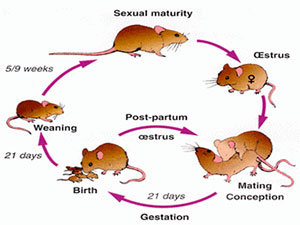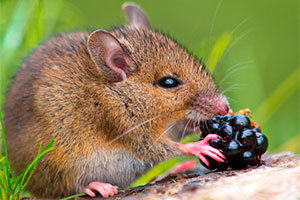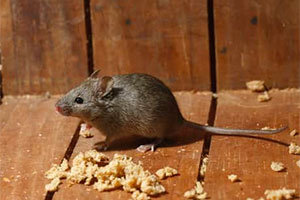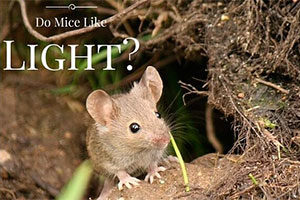Unless you have a pet mouse, the mouse that has made its way into your home is an unwanted guest. It can be a serious problem once it gets inside – building nests in secluded corners, your cluttered garage, beneath cabinets, or even at the base of your kitchen appliances.
Mice can contaminate food, damage your property, and spread diseases. They can be difficult to control due to their ability to run fast and elusive nature. You may consider avoiding these critters by simply waiting for them to die. But just how long do mice live?
Read on to learn everything you should know about the life expectancy of the mouse.
[toc]
How Many Years Do Mice Live?
When a female mouse becomes pregnant, it takes 19-21 days for her to give birth. When the mice pups are born, they lack eyesight, ears, and fur. Hair starts growing around day 6. By the tenth day, they’ll have developed protective fur. Their eyes open after around two weeks.

Weaning occurs on day 21. At this point, male pups usually leave the mother’s territory whereas females tend to stick around for a little longer. However, both sexes are now ready to chew through your possessions.
At 6 weeks of age, a female mouse is now mature enough to start producing her own pups. Taking refuge inside your home boosts the breeding capabilities of the mouse. Just like its breeding output, the length of its life is increased. That’s because it’s not exposed to natural predators or the harsh environment that are present outdoors.
The life expectancy of mice tends to vary from one species to another.
Besides predators, three other common causes of death in mice include:
- cancer,
- heart failure,
- kidney failure.
How Long Do Wild Mice Live?
In the wild, mice have a 50% chance of living beyond 5 months. That’s because of their long list of predators, which include birds, snakes, coyotes, and cats.
 Some other dangers that cut the lives of wild mice short include:
Some other dangers that cut the lives of wild mice short include:
- lack of food,
- poisoning,
- disease,
- poor weather.
The average lifespan of a mouse in the wild is no longer than 1 year.
What about field mice?
The field mouse blends in with its surroundings thanks to its small, solid-colored coat that makes it look like a rock. It darts under bushes and other objects to avoid being spotted by predators like birds. If chased, it sprints into nooks and crannies.
Despite all these great defenses, there are high chances that the field mouse will be eaten. In a study intended to establish the life expectancy of these mice, all the tracked critters were eaten before they reached 2 years of age.
The average field mouse is thought to have a lifespan of about 18 months.
Mice are known to be highly active throughout their lifespan. But when exactly are they more active? Are mice nocturnal? Click this link to learn more.
The Lifespan of a House Mouse
The average house mouse lives less than a year in the wild. Outdoors, it can succumb to predators and starvation.
 In a cozy indoor dwelling, the lifespan of the house mouse is 1-2 years. That’s because of favorable factors like access to shelter, warmth, food, and dry conditions.
In a cozy indoor dwelling, the lifespan of the house mouse is 1-2 years. That’s because of favorable factors like access to shelter, warmth, food, and dry conditions.
Certain conditions boost the chances of house mice making it to the age of 2. These include the presence of food and water. But how long can mice live without food and water? Find out in this informative article.
White-footed mice
These mice have white bellies and feet. They live in woods, shrubby areas, cultivated fields, and farm buildings and houses. They nest in hidden places like tree stumps, old squirrel or bird nests, logs, burrows, and buildings.
Their lifespan is 2-3 years.
What’s the Longest That Mice Can Live?
The lifespan of a mouse can be increased significantly if there are ideal conditions such as a somewhat temperate climate and steady food supply without severe competition.
Mice can live longer than 2 years in captivity. Wild-derived mice have lived for as many as 4 years in laboratories. Laboratory mouse strains such as the C57 live for 2.8 years.
The Methuselah Mouse Prize competition awards laboratory mice that have lived extremely long. At the moment, the record holder is a 2004 genetically modified mouse. It lived for 1819 days, almost 5 years.
Based on research, some of the factors that significantly extend the life expectancy of a mouse include:
- Calorie restriction. Studies have found restricting caloric intake to lengthen the lives of mice considerably. Some calorie-restricted captive mice have reached nearly 5 years of age.
- Mutation. Researchers have found that systematically removing stagnant cells that cease dividing with age increases the lives of normal mice. Some of these mutant mice have lived for 30 months as well as experiencing improved performance of organs and reduced onset of age-related illnesses.
The fact that a single mouse doesn’t have an unusually long lifespan doesn’t imply your rodent problem will diminish after several months. It’s worth remembering that these nasty rodents are prolific breeders, so one female entering your home could translate into a large infestation. So it’s best to deal with a mouse problem as early as possible.




could you tell, how long a VDR-Knockout-Mouse can survice in the laboratory or as a pet compared to the wild-type?
Thanks for the information. Caught a wild mouse due hauling straw and hay in my van. Used a live trap then transferred to another live but larger trap. Am planning to turn the little beggar out when the weather improves. The idea of a cage and seeing how long it will live intrigues me. Have always loved mice of various types. Makes no sense, but tends to keep a lot of strangers away as does a few other pest, spiders for an example.
My cat caught a wild mouse, it was injured due to the catch, I decided to see if I could help it heal before letting it go… by the time it did it was literally eating out of my hand so I realized I accidentally tamed it and took the responsibility… so I build a custom cage for her… that was four and a half years ago and shes still alive and healthy. So if you want to keep it… keep this in mind. I honestly didn’t even think it was possible outside of a lab for a mouse to live this long.